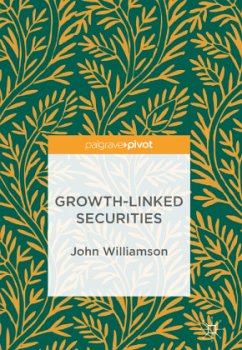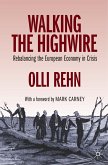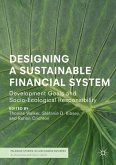This book provides a detailed and comprehensive synthesis of the literature on growth-linked securities, which are an equity-like method of financing for sovereigns. Based on an idea introduced by Shiller (1993), these securities enjoy growing intellectual support. Momentum in favour of them in policy circles has increased since the global financial crisis of 2007-9 and the subsequent debt crisis in Europe in 2010. This book covers many issues on the topic. After surveying the history of the idea and past experiences of countries that issued growth-linked warrants, chapters examine the pros and cons of this financial instrument from the point of view of issuers and investors. The book also discusses technical issues preventing the broad issuance of growth-linked securities and provides solutions to foster their acceptance by market participants.
Bitte wählen Sie Ihr Anliegen aus.
Rechnungen
Retourenschein anfordern
Bestellstatus
Storno








